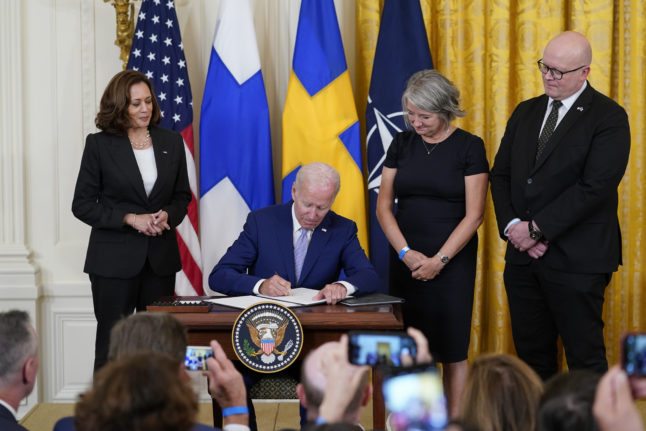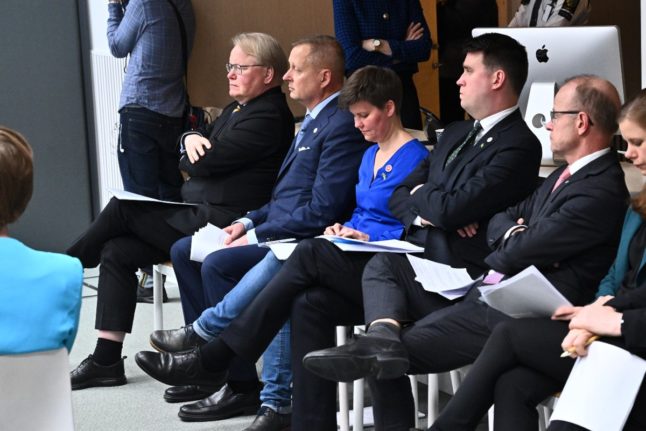Biden said the two northern European countries would become “strong, reliable highly capable new allies” by making the “sacred commitment” to
mutual defense in the US-led transatlantic alliance.
Earlier this month, the Senate voted 95-1 in favor of the Nordic states’ accession, making the United States the 23rd of the 30 NATO countries to give formal endorsement. Unanimous support is needed for new membership.
Biden, who has made restoring traditional US alliances a cornerstone of his administration after Donald Trump’s move to upend ties around the world,
praised NATO as “the foundation of American security.”
“The United States is committed to the transatlantic alliance.”
Biden also praised Finland and Sweden, saying both have “strong democratic institutions, strong militaries and strong and transparent economies” that
would now bolster NATO.
President Vladimir Putin’s Russia “shattered peace and security in Europe” by invading Ukraine, Biden said. “Putin thought he could break us apart…. Instead, he is getting exactly what he did not want.”
The White House said that ahead of the signing ceremony, Biden talked by telephone with Swedish Prime Minister Magdalena Andersson and Finland’s
President Sauli Niinisto.
“President Biden congratulated them on the US Senate’s swift, bipartisan ratification of their NATO accession protocols, and welcomed Finland and Sweden moving one step closer to becoming NATO Allies,” the White House said.
While the process plays out, “President Biden affirmed that the United States will work with Finland and Sweden to remain vigilant against any threats to our shared security, and to deter and confront aggression or threat of aggression,” the statement said.



 Please whitelist us to continue reading.
Please whitelist us to continue reading.
Member comments